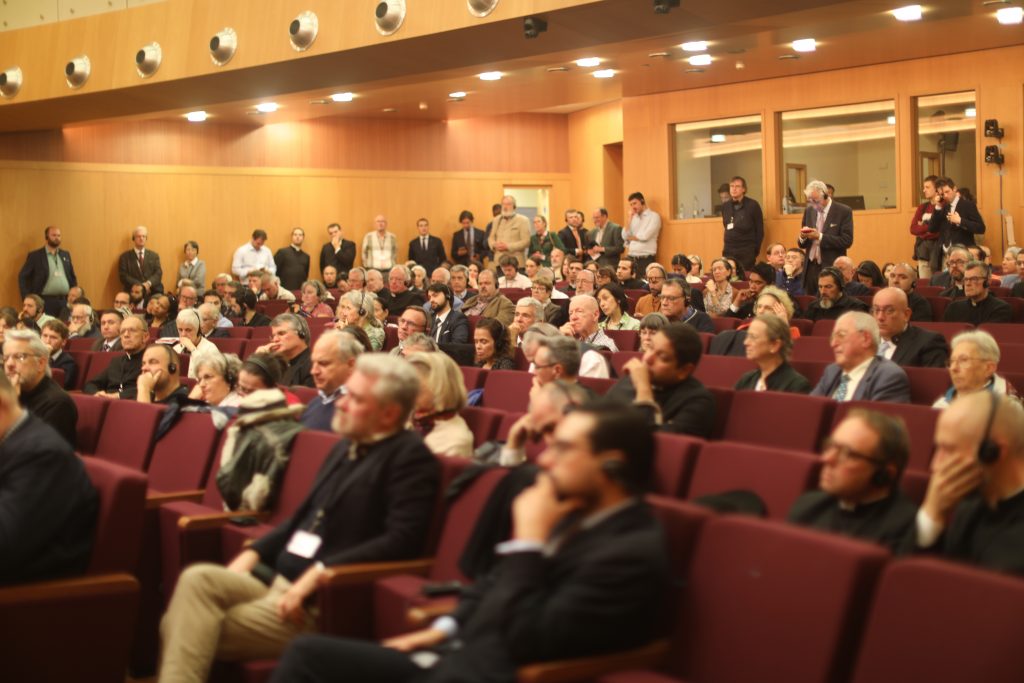
(Above) LIke the rest of the Pilgrimage Summorum Pontificum, the conference was well atttended.
The conference took place on Friday, October 24th. What follows is a selection of the presentations.

(Above) Cardinal Sarah (here in conversation with Prof. John Rao) attended the morning session. (Photo courstesy of John Rao)
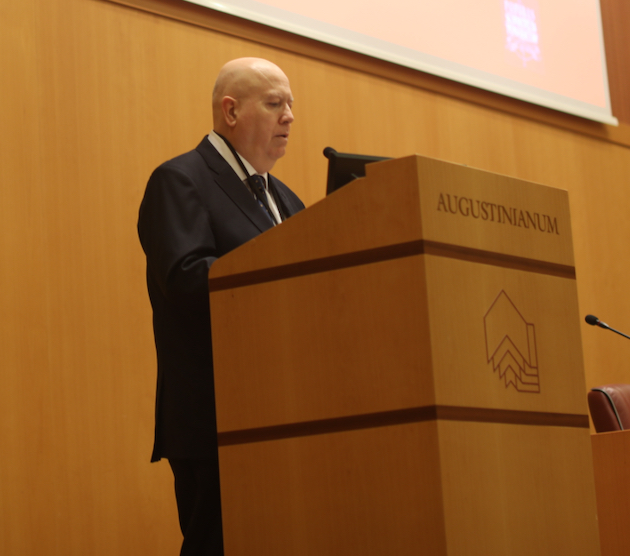
Rubén Peretó Rivas, Director of the International Center for Liturgical Studies, intoduced the conference. He talked of the “difficult” last twelve years, but that signs of hope are present. The Pope states he is open to listening. And the Traditional Mass has continued to grow – not merely as a whim, ideology or aesthetic choice. Attachment to the Traditional Mass now arises from experience of the new Mass, not ignorance of it.
The conference featured speakers who have found the Faith through the Traditional Mass – just in the last several years. Listening to their conversion stories, I was struck by the total lack of religion that so frequently prevails today – even (or especially) in historically Catholic cultures like Spain and Brazil.
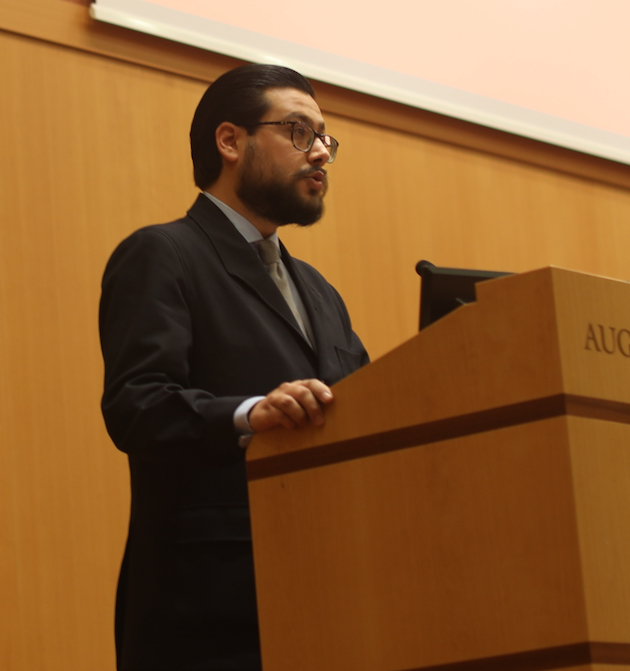
(Above) Eduardo McGregor of Madrid, Spain spoke of his conversion. He came of a completely non-Christian background. The start of his journey as a child was his sudden realization that he would return to nothingness. He debated within himself how the universe could be infinite. Through hearing and reading fairy tales and stories he absorbed early on elements of tradition and morality. Later, as a student, he studied philosophy. Through the influence of professors – who themselves were not Christian – he was directed to traditional philosophy. His circle of friends engaged in lengthy philopshical discussions. ( SC – I thought to myself: how amazing! They still do that in Spain?}. McGregor found himself constantly arguing the Catholic position, almost against his will.(his friends called him “Torquemada!”). Later he dicovered the Mass, and then the traditional Mass. The traditional Mass is the “narrow gate.” He began to feel there were too many coincidences in this spiritual journey to be explained away as such. 20 months after discovering the TLM he was baptized and confirmed. For McGregor, the Traditional Mass is necessary for the recovery of the West.
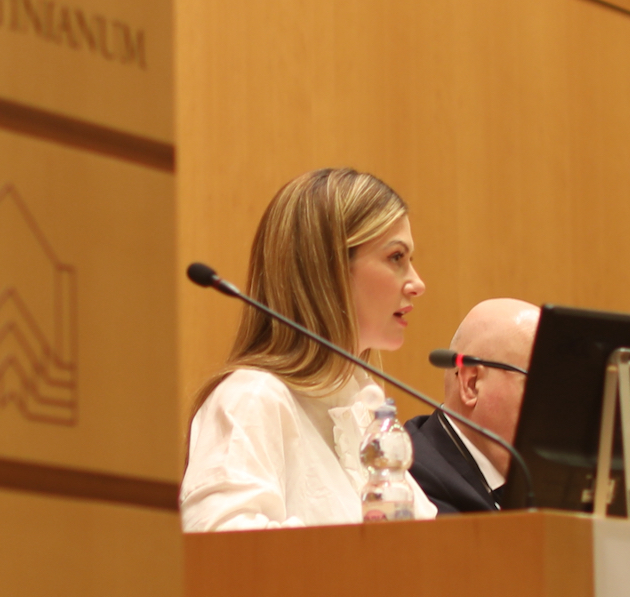
Pietra Bertolazzi of São Paulo, Brazil spoke of her journey from New Age to Traditionalism. She had come from a home imbued with “spiritism.” She moved later to New Age, before realizing this was all a religion of the self. She started to turn to prayer and various other spiritual tendencies, Catholic and non-Catholic. She began to defend the Church and studied the Desert Fathers. She came into contact with Catholic Charismatics – but, she asked herself, why not just be a Prostestant? She met Opus Dei representatives, but found them permeated with feminism and a strange spirit of activism, moreover, they were always hiding their own faith. Of critical importance was the solid Catholic school her daughter attends – for now she herself was no lomger just an isolated seeker but had become part of a like-minded community. Finally she turned to the traditional Mass and to the Virgin. For Bertolazzi found in love for Mary the antidote to feminism and the prevalent disorder in the world. The Mother of God is the examplar of what the true vocation of woman should be.
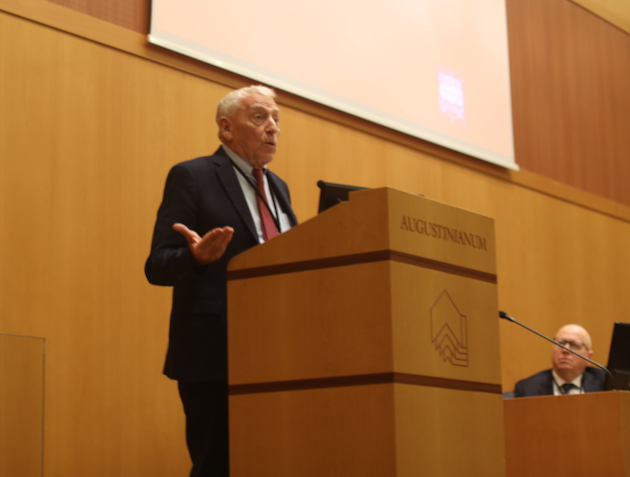
(above) Christian Marquant gave his typically impassioned presentation on the revelation of the questionnaires allegedly supporting Traditionis Custodes. These survey results in fact to a great extent confirmed the success and acceptance of the traditional Mass after Summorum Pontificum – above all in areas where the traditional Mass was actually present. A special “guest star” was Diane Montagna, who had first published this documentation (below).
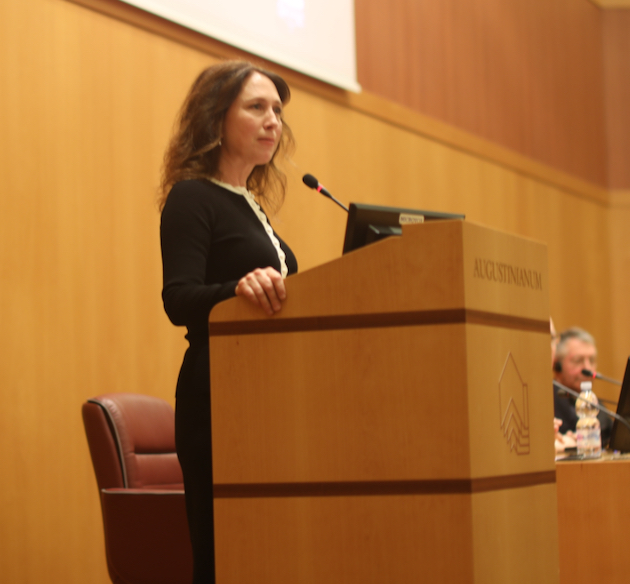
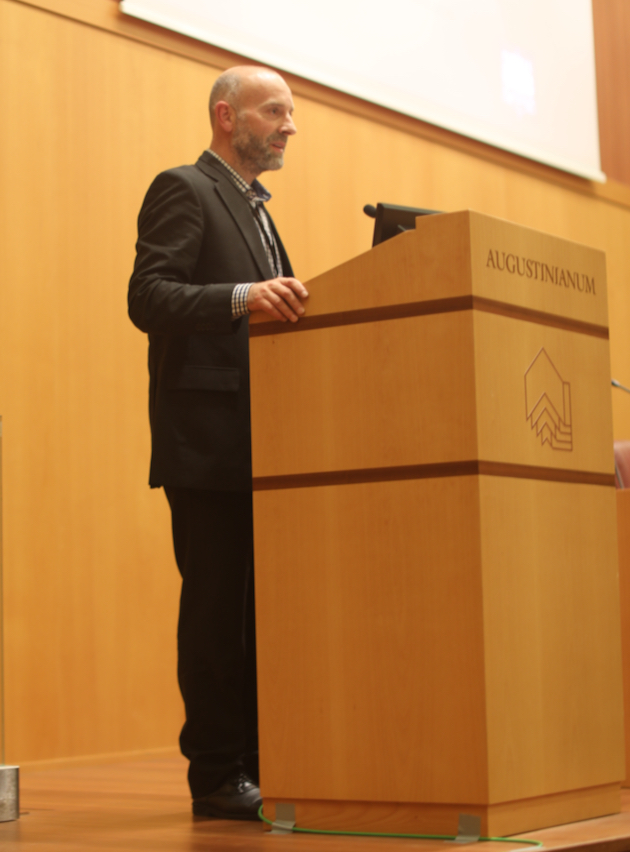
Korantin Denis of France described the development of the pilgrimage Feiz e Breizh in Brittany. Pilgrimages are an increasingly popular and important element of the Traditionalist movement (as this year’s Rome pilgrimage would shortly confirm!). Feiz e Breizh is traditionalist but also committed to the Breton culture and language. Thus its scope is both universal and local.
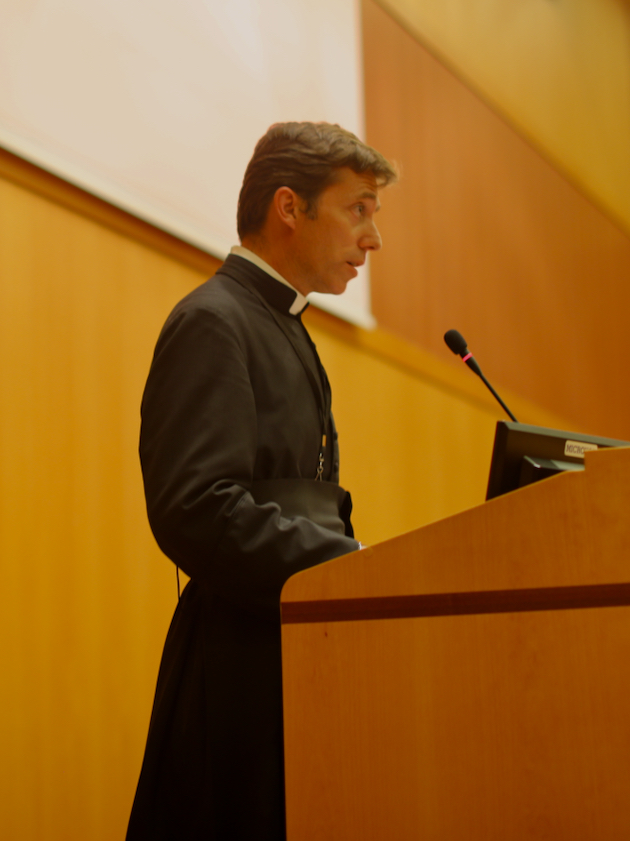
Fr. João Silveira of LIsbon, Portugal spoke of the Church and of the traditional Mass in Asia – a region with which it is not typically associated.
Our thanks to Paix Liturgique for organizing this conference!
Related Articles
No user responded in this post